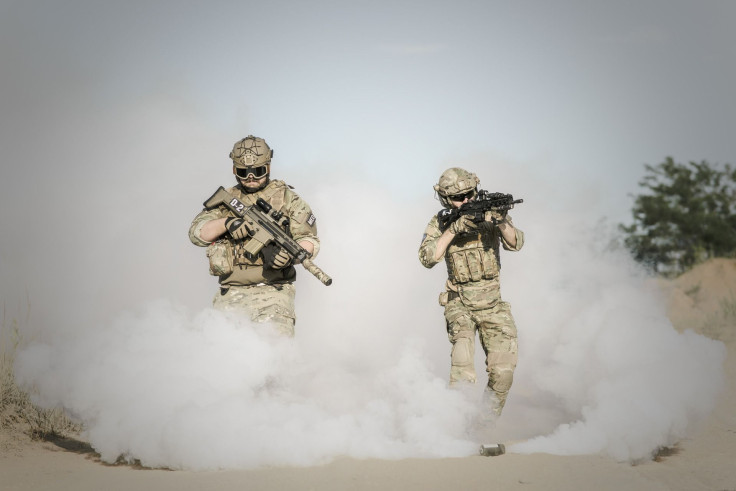What Exactly Happens During ‘Hell Week’ Of Navy Seal Training?
KEY POINTS
- A Navy SEAL candidate died and another was hospitalized after they both completed "Hell Week" training
- The training course is the "toughest training in the U.S. Military" and has an average passing rate of 25%
- The cause of death for the deceased candidate has not yet been disclosed, and an investigation is ongoing
A special forces training course has made headlines after a service member died and another was hospitalized hours after they successfully completed the program.
Seaman Kyle Mullen, 24, was pronounced dead at Sharp Coronado Hospital in Coronado, California, Friday afternoon, the Navy said in a statement released Sunday.
Another unidentified Navy member was taken to Naval Medical Center in San Diego, California, where he remains hospitalized in "stable condition," the maritime service said in an earlier statement.
Officials said both Mullen, who was from Manalapan, New Jersey, and the unidentified sailor were assigned to the Naval Special Warfare Basic Training Command in San Diego as candidates for the Navy's Sea, Air and Land (SEAL) teams — the branch's primary special operations force.
The two were taken to the hospital Friday, several hours after their Basic Underwater Demolition SEAL (BUD/S) class successfully completed "Hell Week,” which is an assessment event during the first phase of the Navy SEAL attribute assessment and selection pathway, the maritime service branch said.
The training course "consists of 5 [and a half] days of cold, wet, brutally difficult operational training on fewer than four hours of sleep" and "tests physical endurance, mental toughness, pain and cold tolerance, teamwork, attitude and your ability to perform work under high physical and mental stress and sleep deprivation," according to the Navy SEALs website.
Candidates for the special forces group "are constantly in motion — running, swimming, paddling, carrying boats on their heads, doing log PT, sit-ups, push-ups, rolling in the sand, slogging through mud, paddling boats and doing surf passage" during Hell Week, the Navy said.
They also "perform evolutions that require them to think, lead, make sound decisions and functionally operate when they are extremely sleep-deprived, approaching hypothermia and even hallucinating," according to the branch.
"While trainees get plenty to eat, some are so fatigued that they fall asleep in their food. Others fall asleep while paddling boats and have to be pulled out of the water by teammates," the SEALs website said.
Despite being the "toughest training in the U.S. Military" with an average passing rate of 25%, safety is "always adhered to" during Hell Week, according to the Navy.
"Medical personnel are on hand during all evolutions to take care of emergencies and monitor the exhausted trainees," they explained.
Both Mullen and the unidentified sailor were not actively training when they reported symptoms, according to the Navy. The former's cause of death is currently unknown, and an investigation is ongoing.
"We extend our deepest sympathies to Seaman Mullen’s family for their loss. We are extending every form of support we can to the Mullen family and Kyle’s BUD/S classmates," Rear Admiral Hugh W. Howard III, commander of Naval Special Warfare Command, was quoted as saying.

© Copyright IBTimes 2024. All rights reserved.





















